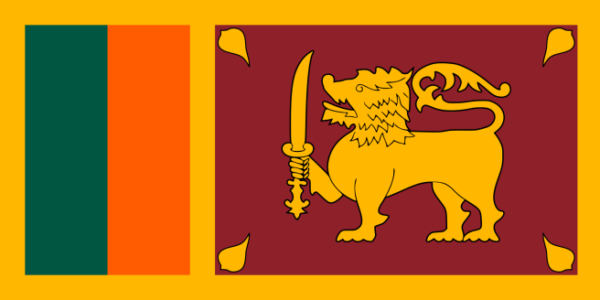Will the elation be short lived ? – By Aubrey Joachim

 There was dancing and jubilation in the streets. Firecrackers were lit in the suburbs. It was reminiscent of 1996 – when Sri Lanka’s national cricket team won the World Cup. Actually it was March 20th 2023 the day the ‘lender of last resort’, the International Monetary Fund – IMF – finally approved its life-line to the country a year after it defaulted on its loans and bonds. The 3 Billion Dollar loan is merely a trickle of what is needed and will just about keep the patient alive on life support. It is being drip fed in 9 tranches over 4 years, subject to strict conditions that the IMF will closely audit and scrutinise every 6 months. This is the 17th time that Sri Lanka has obtained an IMF rescue package – most of the previous have been aborted.
There was dancing and jubilation in the streets. Firecrackers were lit in the suburbs. It was reminiscent of 1996 – when Sri Lanka’s national cricket team won the World Cup. Actually it was March 20th 2023 the day the ‘lender of last resort’, the International Monetary Fund – IMF – finally approved its life-line to the country a year after it defaulted on its loans and bonds. The 3 Billion Dollar loan is merely a trickle of what is needed and will just about keep the patient alive on life support. It is being drip fed in 9 tranches over 4 years, subject to strict conditions that the IMF will closely audit and scrutinise every 6 months. This is the 17th time that Sri Lanka has obtained an IMF rescue package – most of the previous have been aborted.
So what does this all mean to the nation and its people? Did those dancing in jubilation and setting off the firecrackers really comprehend the consequences of accepting the IMF loan? Medicine is always bitter and the IMF prescription is no different. The distaste is already being felt across the populace. Increased taxes, subsidies on many essentials being taken away and further pain on the horizon. However, one of the main conditions stipulated by the IMF – the first time it has ever been introduced into any rescue initiative – may prove to be the sticking point. Corruption has been in the Sri Lankan DNA for a long time and eliminating that trait may be a generational issue which will long outlive the IMF’s tolerance timeline. The President is promising to introduce tough new anti-corruption laws through the parliament but it is a well-known idiom that turkeys do not vote for Christmas. How then will this key IMF criterion be met? Will a second tranche of the loan ever hit the books?
The other challenging condition set by the IMF is for the unsustainable debt levels to be restructured within 3 months. This is a herculean task considering the diverse parties involved as creditors. The numbers tell a damning story. At the time the country defaulted on its debts a year ago the total outstanding was in excess of $52 Billion. The interest meter on this figure did not cease. Since the coffers ran empty various countries – mainly India as well as the World Bank have propped up Sri Lanka with credit lines which have also to be paid back at some point. The amount owing is steadily rising. Some $2 Billion of the old outstanding is due for settlement in a few months. Where will this amount be found? The President is also pleading of the lenders to accept a 10-year moratorium on loan payments. Will they oblige? The math does not look good.
While the paltry IMF offer will hardly scratch the surface of the issue it is hoped that it may unlock other sources of borrowing – to settle prior borrowings! It may also provide some confidence to global markets and investors to once more look favourably towards Sri Lanka. The key point however is that whatever funding that is attracted has to be judiciously managed. If the past is an indicator of the future, then the outlook is bleak. This is where those street side cheer groups have an important role to play and that is to hand over the economic reins to those who can and must change history. This expectation may also be ‘pie-in-the-sky’ thinking. Political wisdom is certainly not hard wired into the Sri Lankan DNA – at least in the past. It is left to see if the next generation can achieve a re-set. However, the young minds are being so confused with various political and social ideologies that a common sensible view may never be reached.
While the so called ‘system-change’ that may address some of the above issues may take decades to realise the country at this point is badly in need of a robust short and medium term strategy and business plan. Above all it needs the fortitude to implement the initiatives. The government and its advisors need to look for the low hanging fruit first in order to bring its financial house in order. Government spending, loss making State Owned Enterprises as well as unsustainable subsidies must all be addressed. The tax base needs to be widened even though the cheer squads may not be pleased. And the big end of town must not be allowed to wriggle out of the tax net. Already the multi-million rupee earners are squealing. Existing production capabilities – agricultural as well as manufacturing – need to be lifted to the next level to generate more income.
While the opening up of capital markets and investment flows may occur such inflows must be harnessed towards both working capital as well as capacity building. Every piece of public infrastructure must provide a payback and above all the build-costs must be true and fair. New opportunities must be exploited based on a long term vision combining the country’s geographic positioning as well as its workforce. Already ideas are floating around for establishment of a supply chain hub and entering the digi-tech industries. The question though is, has Sri Lanka already lost its best young brains to other countries? If so then converting such ideas to reality may be in doubt.
The IMF has thrown a life-line. It is now up to the leaders and the citizens to put their shoulders to the wheel and push. It is not easy to push uphill, but push they must. So for all those cheering mobs whose first act at hearing the IMF decision was to burn their few rupees in firecrackers, let the elation not be short lived.
Aubrey Joachim is a Sri Lankan expat who is an Australian citizen and is a Past Global President of the Chartered Institute of Management Accountants (CIMA) UK.







